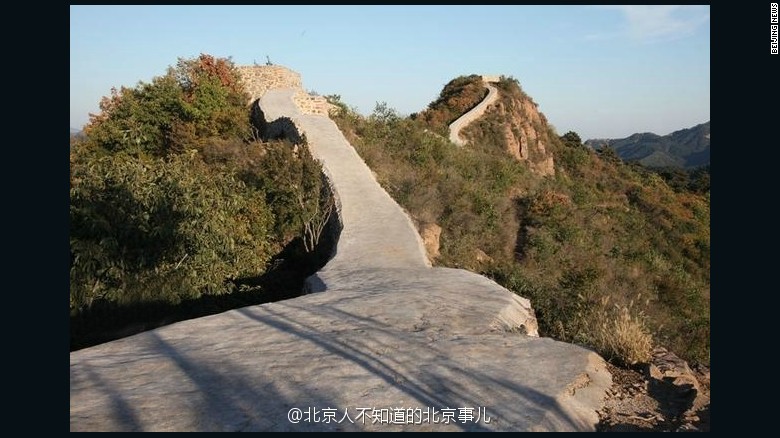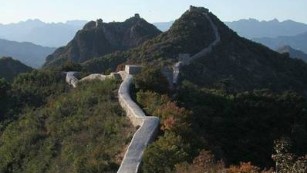‘The Great Wall’: Why The Matt Damon Whitewashing Is No Big Deal In China
Contrasting Chinese and U.S. reactions to Matt Damon's casting in "The Great Wall" underscore the difficulties co-productions have appealing to audiences in both countries.
Aaron Fox-Lerner
Aug 30, 2016 4:27 pm

Matt Damon is the star of “The Great Wall.”
It seems reasonable to expect that a movie called “The Great Wall,” billed as the biggest production in China’s filmmaking history, would feature Chinese actors. Instead, when Universal and Legendary released the trailer for Zhang Yimou’s film, the first face viewers saw was that of the decidedly white Matt Damon, fighting monsters atop the Middle Kingdom’s most famous monument.
In America, it was a call to arms in the battle against whitewashing, that curious tendency to insert Caucasian faces where history tells us there were none. “We have to stop perpetuating the racist myth that only a white man can save the world,” wrote comedian and “Fresh Off the Boat” star Constance Wu in a lengthy, impassioned statement posted to Twitter. “Our heroes don’t look like Matt Damon.”
China had another take. There, the prevailing sentiment over the trespass on their national identity might best be described as a Whatevs.
On Weibo, essentially China’s Twitter (the social media service is banned there), searches relating to “The Great Wall” and whitewashing in Chinese turn up only a few dozen responses at most. Many posts are simply articles explaining the American controversy for Chinese readers. Even of those, most are focused on director Zhang Yimou’s defense of the film, rather than Wu’s criticism of it.
Why the collective shrug? “In China, Chinese are the majority,” said Sally Ye, a Chinese-American producer who has worked in China for more than a decade. “They don’t have this feeling of representation which people of minority backgrounds would feel in the United States.”
Added Wang Xiaoyi, film editor for the Chinese-language Time Out Beijing, “So out of five heroes, there’s one who’s not Chinese.”
However, while the US perceives the film is about Matt Damon saving China, people in China think he’s just one character out of many. Early marketing in the two countries has been markedly different.
In the US, Damon’s face occupies most of the poster, with the titular wall merely a detail over his shoulder. The film’s synopsis on the official website also puts the American actor front and center: “Matt Damon leads humanity’s greatest fight for survival in ‘The Great Wall’ from Legendary and Universal Pictures.”
By contrast, China is much more interested in the screen debut of Chinese boy-band idol Wang Junkai, who appears alongside fellow boy-band-member-turned-actor Luhan and popular star Andy Lau. The Chinese trailer mixes in images of local actors early on, and a teaser poster from Zhang Yimou’s Weibo account also positions Damon in equal proportion to his co-stars.
“It’s just like how the new ‘Independence Day’ used Angelababy,” said Wang, referring to a popular Chinese star whose bit-part casting in the latest “Independence Day” movie was a clear play for the Chinese market. “Zhang Yimou chose Matt Damon because he didn’t want the movie’s audience to be limited to China.”
The Damon comparison is a bit generous; Hollywood films ranging from “Mission Impossible – Rogue Nation” to “Iron Man 3” pander to China by creating marginal roles for Chinese stars (a move that’s inspired mockery both in the US and China). However, co-productions allow foreign companies to dodge barriers that prevent them from participating in the world’s second-largest moviegoing market. China has a 34-film quota on foreign productions, and also allows foreign studios to claim only 25% of a movie’s box office. If a movie has some Chinese participation, companies can circumvent these limits.
One of the few domestic hits in China this summer has been “Skiptrace,” an English-language action-comedy directed by action journeyman Renny Harlin (“Die Hard 2,” “Deep Blue Sea”) starring Jackie Chan and Johnny Knoxville. In the U.S., the film went to DirectTV July 28, with a theatrical run via Saban Films September 2; in China, it’s already has made over 800 million RMB (about 120 million dollars). Other co-productions have been even more explicitly aimed at Chinese audiences: 2015’s “Hollywood Adventures” was co-written and co-produced by the Taiwan-born Justin Lin and featured Chinese stars and dialogue, but it was directed by an American, Timothy Kendall, and shot almost entirely in Los Angeles. That film was also a success in China while remaining largely unknown outside it.
Other movies have gone “The Great Wall” route of shoehorning foreign stars into ancient Chinese settings. “Dragon Blade,” a 2015 epic about warring Roman factions in Han Dynasty-era China, featured John Cusack phoning it in, Adrian Brody hamming it up, and Jackie Chan sporting dreadlocks. It proved a box-office smash in China, while going practically unnoticed in the US. The critically maligned “Outcast” (2014) also sent stars Nicolas Cage and Hayden Christensen into historical China, this time as disillusioned medieval Crusaders.
Even for purely Chinese productions, foreign roles ranging from token to central have become commonplace. “When I first came to China, the people making movie and TV shows didn’t know any foreigners in real life,” Jonathan Kos-Read, a Chinese-speaking white actor who was born in Southern California but makes his living in films like “Mojin — The Lost Legend” and “IP Man 3” — productions targeted to the Chinese audience. “But now because there’s so many foreigners, most of the writers know a real foreigner … And the practical, artistic upshot of that is that they write better, more sophisticated foreign characters who are people before they’re foreigners.”
The trajectory of Kos-Read – who described himself to me as a “minority actor” – from stock clichés to more complex characters would be the envy of many Asian-American performers who find themselves faced with frustratingly stereotypical roles. While “The Great Wall” has been a flashpoint in America over the lack of Asian representation, for the Chinese film industry the main issue has been whether the movie will show growing internationalization can lead to success outside of China.
“The fact that you’re writing an article about ‘Great Wall’ is kind of a genuine change,” Kos-Read said. “If it works, that’s going to be great. It means a lot more of that is going to happen, and as an actor, it’ll mean a lot more work.”
Still, even with an American star and a Western writing team (among them Max Brooks, Tony Gilroy, and Marshall Herskovitz), Ye believes “The Great Wall” is aimed mainly at China, with the US as a secondary bonus. “I think they took China as priority,” she said, “but they don’t want to not have the US distribution, because it’s a huge, big-budget film.”
Censorship may be another reason why “The Great Wall” is not controversial in China; as a state-approved production, the government’s involvement might be enough to presume national respect. “I think that media in China, at least the ones who are going to drive word of mouth for ‘The Great Wall,’ will want ‘Great Wall’ to be a success,” said one Asian-American working for a large Chinese film company who wished to remain anonymous. “Right now SARFT [the State Administration of Radio, Film and Television] is more invested in showing that Chinese filmmakers can make a movie of Western standards than they are in undermining the kind of ideological fiber inside the movie itself.”
“The Great Wall” is clearly aimed at a level of international success beyond any prior Chinese film or co-production — and with it, a previously unknown level of scrutiny. As the anonymous film worker put it, even without its whitewashing controversy, “The Great Wall” is “a glaring example of how much people are willing to spend to make the co-production prove its viability.” The U.S. controversy over the movie’s casting shows just how hard that viability may be to achieve.





 Reply With Quote
Reply With Quote




















